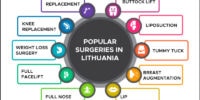How to Slow and Reverse Aging – Dr. David Sinclair Unveils Secrets

Dr. David Sinclair is a leading researcher in the field of aging. He has dedicated his career to understanding the molecular mechanisms behind the aging process and finding ways to slow it down or halt it altogether.
In his groundbreaking research, Dr. Sinclair has uncovered several key factors that contribute to aging, including the decline of cellular energy production and the accumulation of damaged DNA. By targeting these factors, he believes it is possible to not only extend lifespan but also increase healthspan, the period of life when a person is healthy and free from chronic diseases.
One of the tools that Dr. Sinclair and his team have developed is a molecule called NAD+. This molecule plays a critical role in cellular energy production and declines as we age. By boosting NAD+ levels, Dr. Sinclair has been able to improve the health and lifespan of mice in his lab experiments. He believes that similar interventions could have a profound impact on human health as well.
In addition to his research, Dr. Sinclair is also a proponent of lifestyle factors that can enhance longevity and overall health. He emphasizes the importance of regular exercise, a healthy diet, and stress reduction techniques such as meditation. He also encourages people to stay socially connected, as studies have shown that strong social bonds are associated with better health and longer life.
Dr. Sinclair’s work has garnered significant attention in the scientific community and beyond. He has been recognized with numerous awards and honors for his contributions to the field of aging research. His findings have the potential to revolutionize our understanding of aging and open up new possibilities for extending both lifespan and healthspan.
Key Takeaways
- Dr. David Sinclair focuses on cellular and molecular pathways of aging and identifies intervention points to slow or reverse aging.
- The Lifespan Podcast, hosted by Dr. Sinclair, covers the biology of aging, tools to intervene in the aging process, and provides practical tools for everyday life.
- Dr. Sinclair explores behavioral, nutritional, and supplementation interventions to combat aging.
- The epigenome and information loss in the epigenome are major causes of aging, leading to dysfunction and aging-related diseases.
Dr. David Sinclair’s Groundbreaking Research
Dr. David Sinclair’s groundbreaking research delves into the cellular and molecular pathways of aging, aiming to identify intervention points that can potentially slow down or even reverse the aging process. His research on cellular rejuvenation highlights the role of DNA damage in aging.
DNA damage, caused by various factors such as environmental toxins and oxidative stress, accumulates over time and contributes to the aging process. Dr. Sinclair’s research focuses on understanding how DNA damage affects cellular function and exploring strategies to repair or prevent this damage.
Exploring the Biology of Aging
What are the underlying cellular and molecular processes that contribute to the aging of organs and tissues?
The biology of aging encompasses the intricate cellular and molecular mechanisms that underlie the aging process in organs and tissues. Here are two subtopics that shed light on this phenomenon:
- Epigenetic Modifications:
- The epigenome, which controls gene expression, plays a crucial role in aging.
- Epigenetic modifications, such as DNA methylation and histone modifications, can accumulate over time and contribute to the aging process.
- Cellular Senescence:
- Cellular senescence refers to the state of irreversible cell cycle arrest.
- Senescent cells accumulate with age and contribute to tissue dysfunction and age-related diseases.
Understanding these processes is vital for developing interventions to slow down or reverse aging. By targeting epigenetic modifications and cellular senescence, researchers aim to find ways to promote healthier aging and extend the lifespan.
Understanding the Epigenome and Its Role in Aging
The epigenome, a crucial regulator of gene expression, plays a significant role in the process of aging. Epigenetic modifications, such as DNA methylation and histone modifications, can alter gene activity without changing the underlying DNA sequence. These modifications can be influenced by environmental factors and lifestyle choices, and they can accumulate over time, leading to changes in gene expression patterns associated with aging.
Understanding the role of epigenetic modifications in aging is essential for developing targeted interventions to slow down or reverse the aging process.
Researchers are exploring epigenetic therapies for aging, aiming to restore the youthful gene expression patterns by manipulating the epigenome. These therapies could potentially rejuvenate cells and tissues, improve overall health, and extend lifespan. However, more research is needed to fully understand the complex mechanisms underlying epigenetic modifications and their impact on aging.
Unique Aspects of Aging and Strategies to Combat It
Aging presents unique challenges that require strategic approaches to combat its effects and promote healthy longevity. To address these challenges, here are two key strategies:
- Role of exercise in slowing aging:
- Regular physical activity has been shown to have numerous benefits in slowing down the aging process.
- Exercise improves cardiovascular health, strengthens muscles and bones, and enhances cognitive function.
- It also helps to maintain a healthy weight, reduce the risk of chronic diseases, and improve overall quality of life.
- Engaging in a variety of exercises, including aerobic, strength training, and flexibility exercises, is recommended for optimal aging benefits.
- Impact of stress on the aging process:
- Chronic stress can accelerate the aging process and negatively impact overall health.
- High levels of stress hormones, such as cortisol, can lead to inflammation, impaired immune function, and increased risk of chronic diseases.
- Managing stress through relaxation techniques, mindfulness practices, and engaging in activities that promote emotional well-being can help mitigate its negative effects on aging.
- Building strong social connections and seeking support from loved ones can also help reduce stress and promote healthy aging.
Insights Into the Discoveries of Sirtuins
To further unravel the complexities of aging and explore potential interventions, one area of focus is on the groundbreaking discoveries of sirtuins and their profound impact on the biology of aging.
Sirtuins are a group of proteins that play a crucial role in cellular rejuvenation and have been linked to longevity. These proteins regulate various cellular processes, including DNA repair, metabolic function, and inflammation, which are all implicated in the aging process.
Additionally, sirtuins have been found to modulate epigenetic modifications, which are changes in gene expression that occur without alterations in the DNA sequence. By influencing epigenetic modifications, sirtuins have the potential to counteract age-related diseases and promote healthier aging.
Understanding the role of sirtuins in the biology of aging opens up exciting possibilities for developing interventions that target these proteins and delay the onset of age-related diseases.
The Impact of Behavioral and Nutritional Interventions
Behavioral and nutritional interventions play a crucial role in slowing down the aging process and promoting healthier aging. These interventions offer practical and accessible ways to improve overall well-being and longevity.
Here are two key ways in which behavioral and nutritional interventions can have a positive impact on aging:
- Behavioral Interventions:
- Regular exercise: Engaging in physical activity helps maintain muscle strength, flexibility, and cardiovascular health, reducing the risk of age-related diseases.
- Stress management: Implementing stress reduction techniques such as meditation or mindfulness can improve mental well-being and potentially slow down the aging process.
- Nutritional Interventions:
- Balanced diet: Consuming a diet rich in fruits, vegetables, whole grains, lean proteins, and healthy fats provides essential nutrients for cellular repair, supports immune function, and reduces the risk of chronic diseases.
- Caloric restriction: Restricting calorie intake without malnutrition has been shown to extend lifespan and delay age-related decline in various organisms.
Role of Supplementation in Slowing Aging
Supplementation plays a vital role in supporting the effectiveness of behavioral and nutritional interventions in slowing down the aging process and promoting healthier aging. In addition to exercise and sleep, incorporating supplements into one’s routine can have a significant impact on slowing down the aging process.
Studies have shown that certain supplements, such as resveratrol and nicotinamide riboside, can activate sirtuins, which are proteins that play a crucial role in regulating cellular aging. These supplements have been found to enhance the body’s natural defense mechanisms against age-related diseases and promote longevity.
Furthermore, supplementation with antioxidants, such as vitamin C and E, can reduce oxidative stress and inflammation, both of which contribute to the aging process.
Differentiating Longevity and Anti-Aging Terminologies
The distinction between longevity and anti-aging terminologies is essential in understanding the different approaches and perspectives within the field of aging. Here are the key differentiating points:
- Longevity:
- Focuses on extending lifespan and promoting overall health and well-being.
- Emphasizes interventions that enhance the body’s natural mechanisms, such as improving cellular health and reducing inflammation.
- Takes a holistic approach, considering factors like lifestyle, nutrition, and exercise.
- Anti-Aging:
- Primarily aims to reverse or slow down the visible signs of aging, such as wrinkles and age spots.
- Often associated with cosmetic interventions, like creams, serums, and cosmetic procedures.
- Misconceptions about anti-aging interventions may arise from the focus solely on external appearance rather than addressing the underlying causes of aging.
Understanding the distinction between these approaches helps individuals make informed choices about their health and well-being, taking into account both longevity and anti-aging perspectives.
Aging as an Underlying Cause of Common Diseases
Aging serves as the underlying cause of numerous common diseases, contributing to their development and progression. Chronic diseases such as cardiovascular disease, cancer, neurodegenerative disorders, and metabolic conditions are influenced by the aging process. The relationship between aging and these diseases is complex and multifactorial.
One important factor is the role of the epigenome in aging-related diseases. The epigenome controls gene expression patterns in different cells and tissues, and its dysregulation can lead to dysfunction and the development of age-related diseases. Information loss in the epigenome is a major cause of aging, contributing to the decline in cellular and tissue function.
Understanding the role of the epigenome in aging-related diseases is crucial for developing interventions and treatments to combat the detrimental effects of aging on health.
Unveiling the Major Causes of Aging
Researchers are actively investigating the underlying causes of aging in order to develop interventions and treatments that can slow down or reverse the aging process. The major causes of aging, also known as hallmarks of aging, have been identified by scientists.
Two key causes of aging are epigenetic modifications and cellular senescence.
- Epigenetic modifications: The epigenome, which controls which genes are switched on and off in different cells, plays a crucial role in aging. As we age, there is a loss of information in the epigenome, leading to dysfunction and aging-related diseases. It is estimated that the epigenome is responsible for 80% of future longevity and health.
- Cellular senescence: This refers to the state where cells lose their ability to divide and function properly. As we age, more cells become senescent, contributing to tissue and organ dysfunction. Cellular senescence is associated with inflammation and the accumulation of harmful substances that further accelerate the aging process.
Understanding these major causes of aging provides valuable insights for the development of interventions and treatments that can target and mitigate these processes, ultimately promoting healthy aging and extending lifespan.
The Epigenome: Key Player in Aging and Disease
With a deep understanding of the major causes of aging, scientists are now turning their attention to the pivotal role played by the epigenome in the aging process and its implications for disease development. The epigenome refers to the chemical modifications that occur on DNA and its associated proteins, which regulate gene expression without altering the DNA sequence itself. These epigenetic modifications play a crucial role in determining which genes are activated or silenced in different cells, thus influencing cellular function and development. However, as we age, the epigenome undergoes changes, leading to a loss of information and dysregulation of gene expression. This epigenetic clock, as it is known, contributes to the development of age-related diseases. Understanding and targeting these epigenetic modifications could hold the key to slowing down the aging process and preventing disease progression.
| Epigenetic Modifications | Epigenetic Clock | Role in Aging and Disease |
|---|---|---|
| DNA methylation | Measures age-related changes in DNA methylation patterns | Implicated in aging and age-related diseases, including cancer and neurodegenerative disorders |
| Histone modifications | Reflects changes in chromatin structure and gene expression | Dysregulation contributes to aging and age-related diseases |
| Non-coding RNA | Alters gene expression and cellular functions | Involved in age-related processes and diseases, such as cardiovascular disease and diabetes |
| Chromatin remodeling | Regulates gene accessibility and transcription | Dysfunction leads to altered gene expression and cellular senescence |
Frequently Asked Questions
What Are Some of the Sponsors of the Huberman Lab Podcast?
Sponsorship opportunities on the Huberman Lab Podcast provide benefits of reaching a diverse audience interested in science and health. Current sponsors include ROKA for eyewear, InsideTracker for personalized nutrition analysis, and Magic Spoon for zero sugar, grain-free cereal options.
What Are the Different Terminologies Used in the Field of Aging?
Different terminologies used in the field of aging include longevity and anti-aging. While some consider aging a disease, it is the underlying cause of many common diseases. Major causes of aging include epigenetic information loss and dysfunction.
How Is Aging Considered as a Disease by Some Researchers?
Aging is considered a disease by some researchers due to the underlying causes and the impact it has on overall health. The loss of information in the epigenome and telomere shortening are major factors contributing to aging.
What Are the Eight or Nine Major Causes of Aging?
The eight or nine major causes of aging include telomere shortening, DNA damage, mitochondrial dysfunction, cellular senescence, epigenetic alterations, proteostasis imbalance, nutrient sensing dysregulation, and stem cell exhaustion. Lifestyle factors can also contribute to the aging process.
How Does the Epigenome Control the Switching on and off of Genes in Different Cells?
Epigenetic regulation is a crucial process in gene expression control. It involves modifications to the epigenome, which determines which genes are activated or silenced in different cells. This process plays a significant role in aging and its associated diseases.







